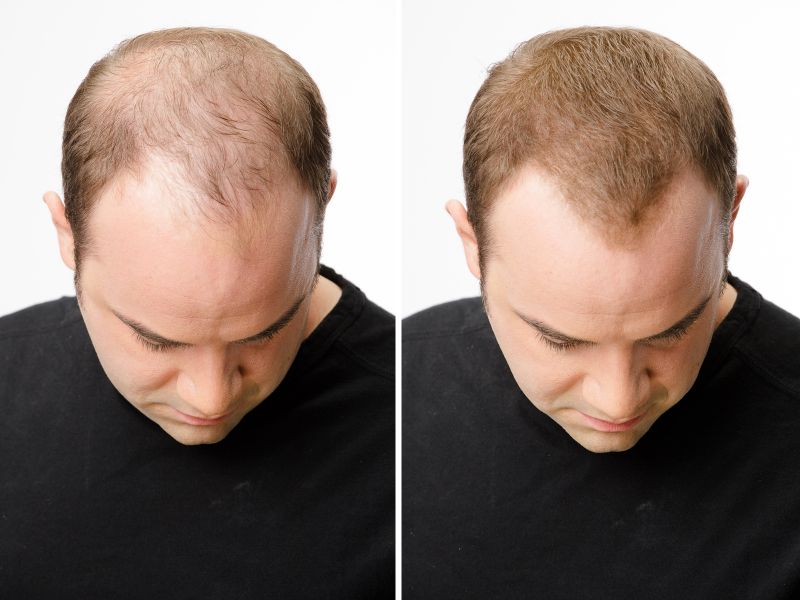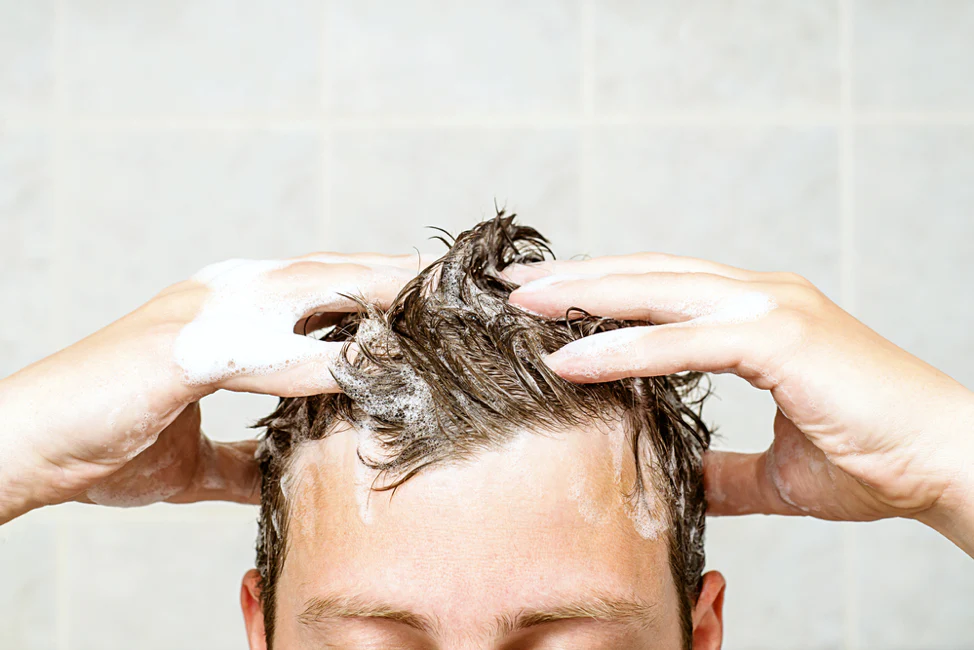There are countless hair loss shampoos available on the market, but do they really work? Many people struggling with hair loss are eager to find a solution, and these specialized shampoos claim to offer just that. However, it can be challenging to determine whether they are truly effective or simply a marketing gimmick. In this article, we will explore the effectiveness of hair loss shampoos and examine whether they live up to their promises.
Understanding Hair Loss and Its Causes

Hair loss is a common condition that affects people of all ages. Understanding the causes of hair loss is essential in determining the most effective treatment and prevention methods. There are several factors that contribute to hair loss, including genetics, hormonal imbalances, and certain medical conditions. It’s important to seek professional advice to address hair loss and consider hair loss treatment, hair loss remedies, and hair loss prevention as part of a comprehensive approach to managing the issue.
Common Causes of Hair Loss Include:
- Genetics: Family history plays a significant role in determining the likelihood of experiencing hair loss.
- Hormonal Imbalances: Changes in hormone levels, such as during pregnancy or menopause, can contribute to hair loss.
- Medical Conditions: Certain conditions, such as thyroid disorders or alopecia, can lead to hair loss.
- Stress and Trauma: Physical or emotional stress can cause temporary hair loss.
- Poor Nutrition: Lack of essential nutrients can affect hair growth and lead to thinning or shedding.
By addressing the underlying causes of hair loss and considering hair loss treatment, hair loss remedies, and hair loss prevention, individuals can take proactive steps to manage and potentially reverse the effects of hair loss.
The Science Behind Hair Loss Shampoos
For many people, dealing with hair loss can be a frustrating and distressing experience. That’s why the market is flooded with various hair loss solutions and hair loss products, with each claiming to be the ultimate remedy for the problem. However, it’s important to understand the hair loss causes before investing in any product.
One popular approach to combating hair loss is the use of hair loss shampoos. These shampoos often contain ingredients that are believed to promote hair growth and prevent further loss. But what is the science behind these shampoos?
The Active Ingredients
Many hair loss shampoos contain active ingredients such as minoxidil, ketoconazole, and biotin. These ingredients have been scientifically proven to stimulate hair follicles, improve scalp health, and promote thicker, healthier hair.
The Mechanism of Action
Minoxidil, for example, works by increasing blood flow to the scalp and widening the hair follicles, allowing for better oxygen and nutrient delivery. Ketoconazole helps to reduce inflammation and fungal growth on the scalp, which can contribute to hair loss. Biotin, on the other hand, is essential for the production of keratin, the protein that makes up hair.
When using hair loss shampoos, it’s important to manage expectations and be patient, as results may take several months to become noticeable. Additionally, it’s always best to consult with a healthcare professional to determine the best course of action for your specific hair loss causes.
| Active Ingredient | Mechanism of Action |
|---|---|
| Minoxidil | Increases blood flow to the scalp, widens hair follicles |
| Ketoconazole | Reduces inflammation, controls fungal growth on the scalp |
| Biotin | Essential for keratin production, promotes hair strength |
Effectiveness of Key Ingredients in Hair Loss Shampoos

When it comes to addressing hair loss, diagnosis is the first step in finding the right treatment. Hair loss can be caused by various factors such as genetics, hormonal imbalances, and stress. It’s important to consult with a professional to determine the underlying cause of hair loss and develop a personalized treatment plan.
After diagnosis, the next step is finding a hair loss treatment that is effective in promoting hair regrowth and preventing further loss. This is where the key ingredients in hair loss shampoos come into play. Ingredients such as biotin, caffeine, and ketoconazole have been shown to be effective in promoting hair growth and preventing hair loss.
Hair loss prevention
Aside from treating hair loss, preventing further loss is equally important. Key ingredients such as saw palmetto, rosemary oil, and minoxidil are known for their ability to prevent hair loss and promote a healthy scalp environment for hair regrowth.
In conclusion, the effectiveness of key ingredients in hair loss shampoos cannot be overlooked. Whether it’s for hair loss diagnosis, treatment, or prevention, these ingredients play a crucial role in addressing the issue of hair loss and promoting overall hair health.
Clinical Studies and Research on Hair Loss Shampoos
When it comes to addressing hair loss, many individuals turn to specialized shampoos as a potential remedy. But do these products actually deliver on their promises? Clinical studies and research have delved into the effectiveness of hair loss shampoos, and the results are mixed.
Key Findings from Clinical Studies
1. Ingredients: Several clinical studies have focused on the key ingredients in hair loss shampoos, such as ketoconazole, saw palmetto, and biotin. While some ingredients show promise in promoting hair growth, others lack substantial evidence.
2. Effectiveness: Research indicates that while some individuals experience positive results with hair loss shampoos, the outcomes can vary significantly from person to person. Factors such as the underlying cause of hair loss and individual genetic predispositions play a role in determining effectiveness.
3. Side Effects: Clinical studies have also explored potential side effects of hair loss shampoos, including scalp irritation and dryness. It’s important to consider the potential risks alongside the purported benefits.
Recommendations for Consumers
Based on the current body of research, individuals considering hair loss shampoos should approach these products with caution. Consulting with a dermatologist or hair loss specialist can provide personalized recommendations based on an individual’s unique circumstances.
While hair loss shampoos may offer a non-invasive option for addressing hair loss, it’s essential to manage expectations and remain mindful of the limitations of these products.
Tips for Choosing the Right Hair Loss Shampoo

When it comes to choosing a hair loss shampoo, it’s important to consider a few key factors to ensure you’re getting the right product for your needs. First and foremost, look for shampoos that contain ingredients known to promote hair growth, such as biotin, keratin, and saw palmetto. Additionally, consider your specific hair type and any potential scalp conditions, as these factors can impact which shampoo will be most effective for you. Finally, read reviews and consider consulting with a professional to determine the best option for your individual situation.
Frequently Asked Questions
What are the common causes of hair loss?
The common causes of hair loss include genetics, hormonal changes, medical conditions, and medications.
Can hair loss be reversed?
The potential for reversing hair loss depends on the cause. Some types of hair loss can be reversed with appropriate treatment.
Are there any effective treatments for hair loss?
Yes, there are various treatments for hair loss, including medications, topical treatments, and hair transplant surgery.
Does stress cause hair loss?
Stress can contribute to hair loss, but it is not the sole cause. Managing stress and maintaining a healthy lifestyle can help prevent hair loss.
At what age does hair loss typically occur?
Hair loss can occur at any age, but it is more common as people age, with the majority of cases occurring in middle-aged and older individuals.
